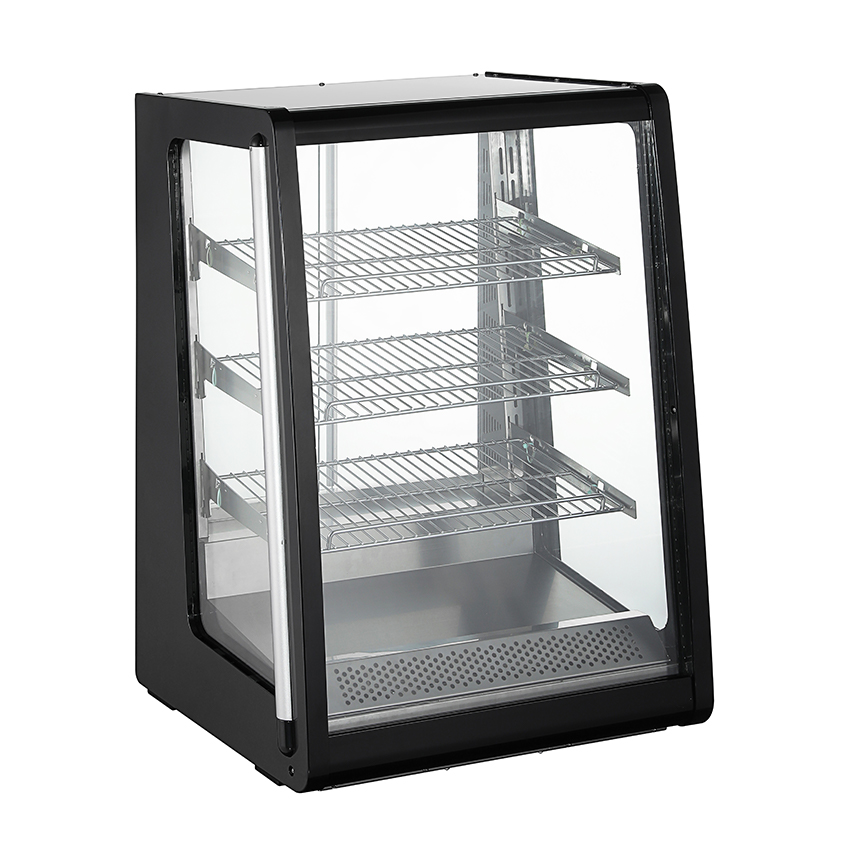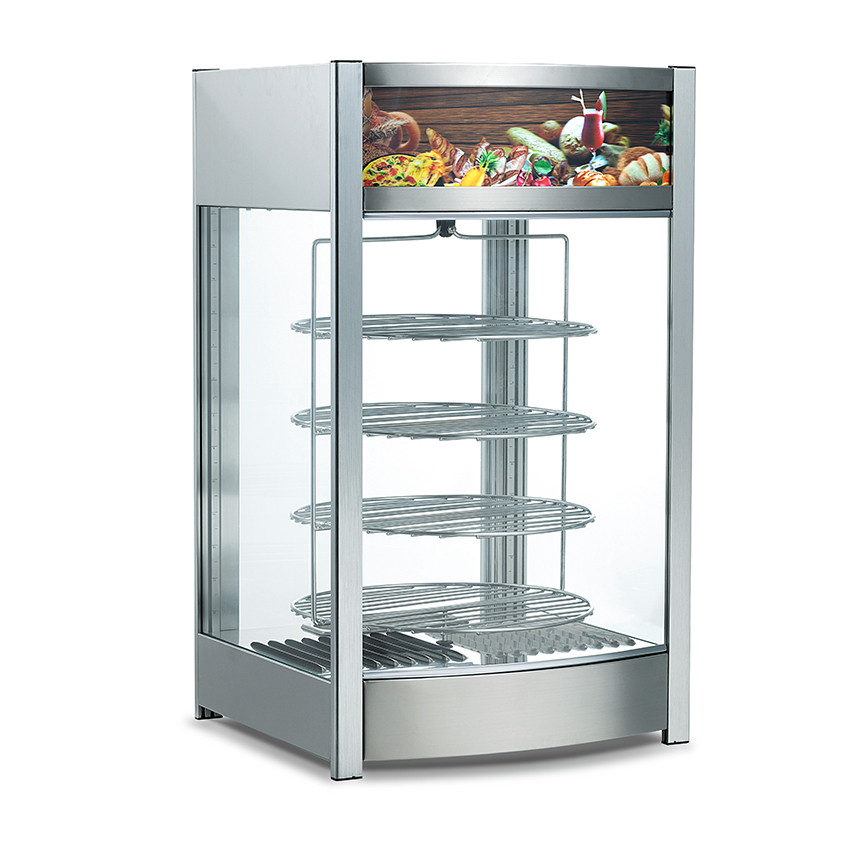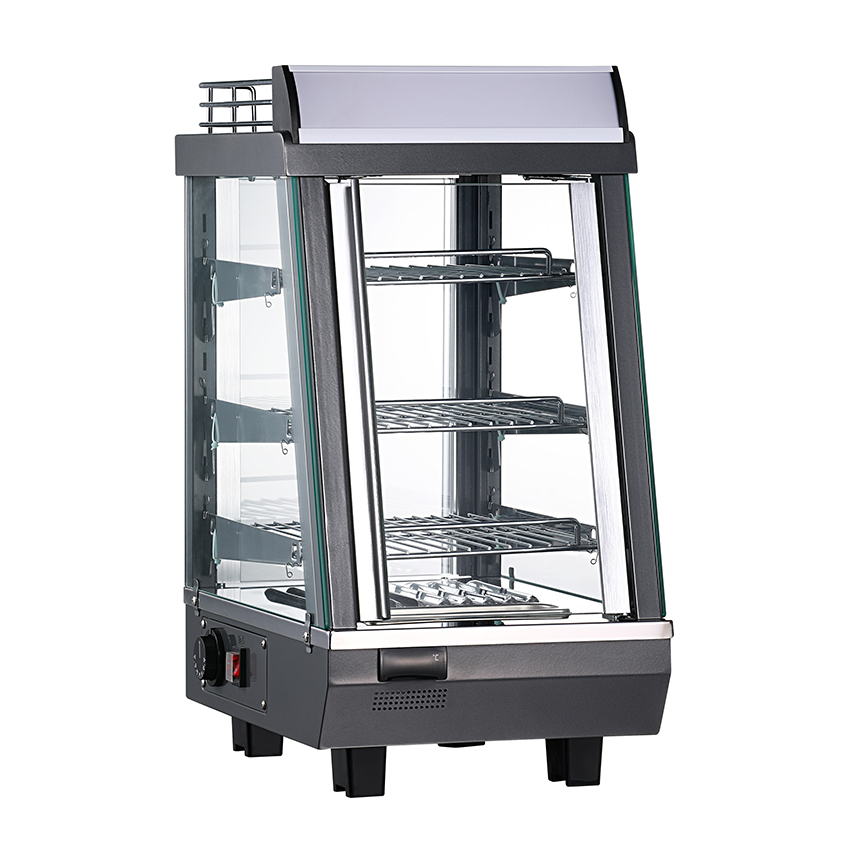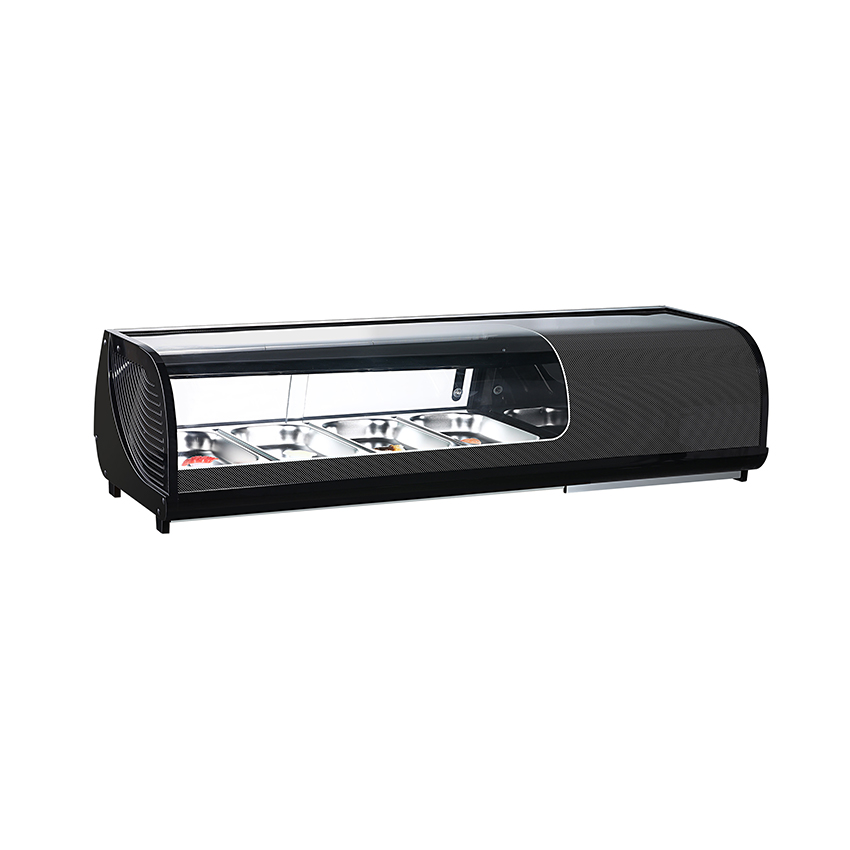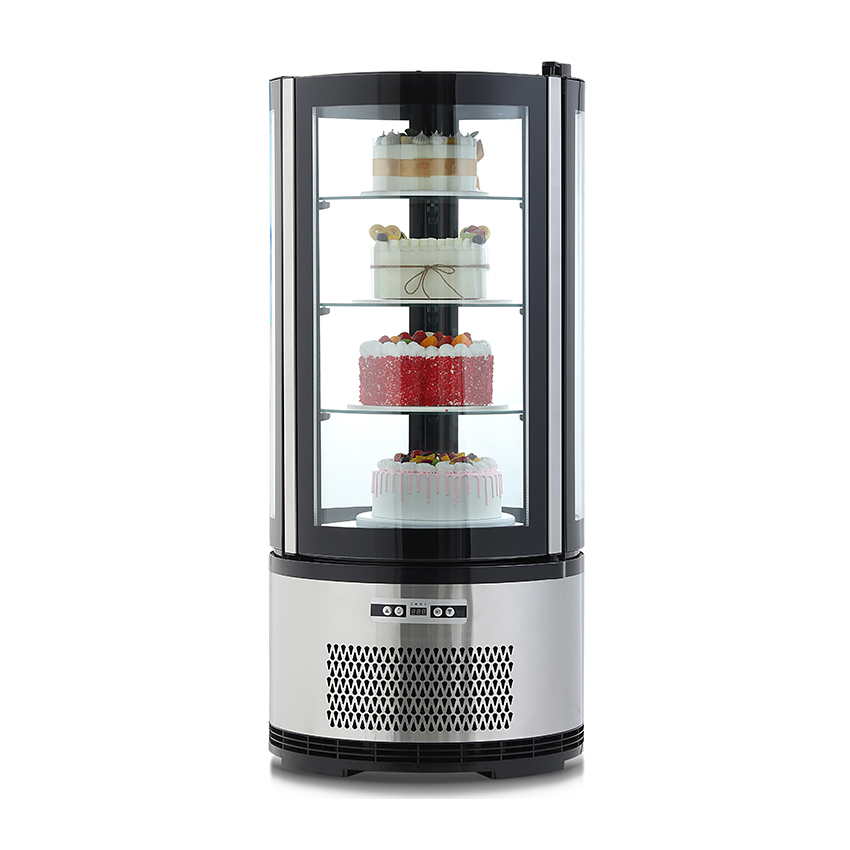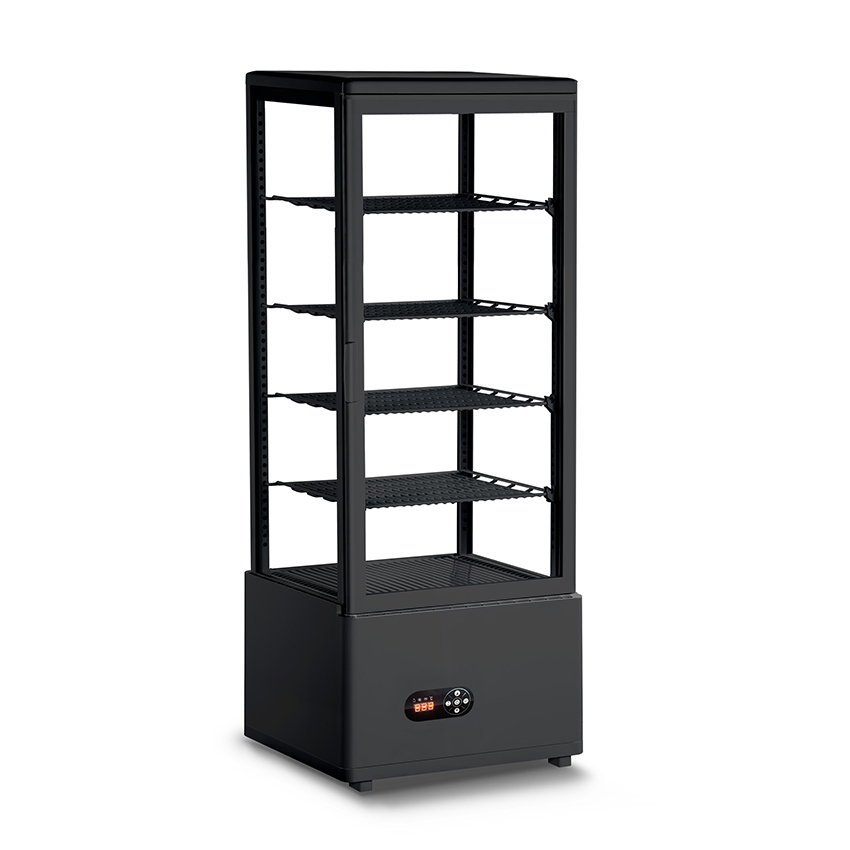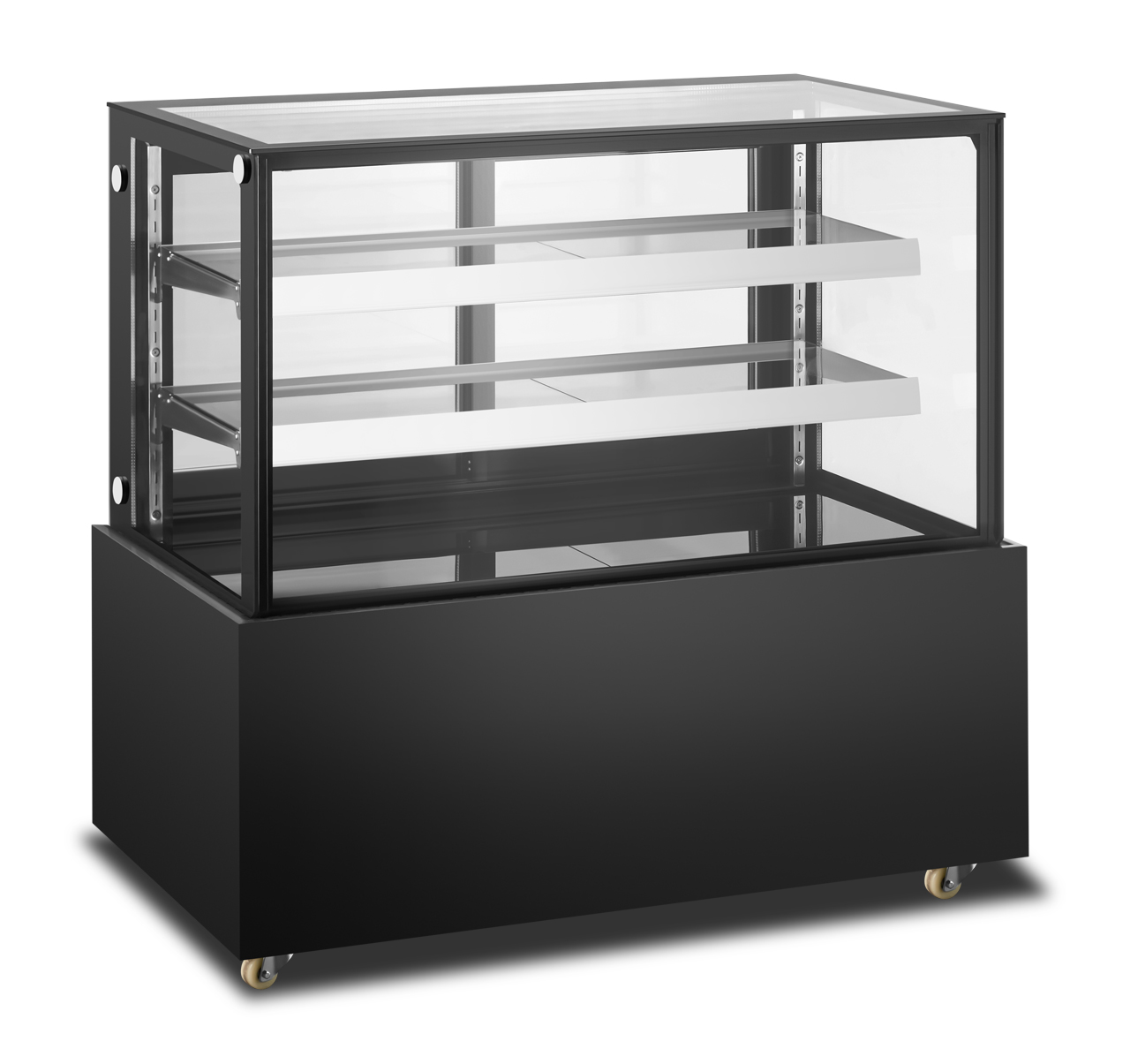Cake display cabinets are commercial refrigerated units designed specifically for displaying and preserving cakes, desserts, and other baked goods. They are widely used in bakeries, dessert shops, cafes, hotels, and other locations. They not only maintain the freshness of cakes but also attract customers and boost sales through attractive displays.
1. Main Functions of Cake Display Cabinets
Refrigeration and Preservation: Keep cakes at a suitable temperature (usually 0-10°C) to prevent cream from melting and fruit from spoiling.
Dust and Bacteria Prevention: Transparent glass doors or open designs reduce dust and bacterial contamination.
Display Effect: LED lighting enhances visual appeal and highlights the color and shape of cakes.
Space Optimization: Multi-tiered designs optimize space utilization and allow for the display of a variety of products.
2. Common Types and Application Scenarios
- Classification by refrigeration method
|
Type |
Features |
Applications |
|
Direct Cooling |
Low price, simple structure, but uneven temperature, requiring manual defrosting |
Small bakery, low-cost operation |
|
Air Cooling |
Uniform temperature, automatic defrosting, and improved freshness preservation |
Mid- to high-end bakery, chain brands |
- Classification by display method
|
Types |
Features |
Applicable Scenarios |
|
Vertical multi-tiered cake display cases |
Space-saving vertical design, ideal for small shops |
Street-side cake shops, cafes |
|
Horizontal cake display cases |
Similar to supermarket freezers, convenient for customers to pick up their own cakes |
Buffet restaurants, dessert counters |
|
Open cake display cases |
Doorless design for easy access, but requires air conditioning |
High-end dessert shops, hotels |
|
Curved/special-shaped cake display cases |
Customized design enhances your store's appeal |
Influencer stores, flagship brand stores |
3. Suggestions on the use and maintenance of cake display cabinets
Daily cleaning and maintenance
(1) Daily cleaning
Glass panel: Wipe with glass cleaner + soft cloth to avoid water stains and fingerprints.
Trays/shelves: Clean with food-grade disinfectant to prevent bacterial growth.
Drain holes: Check for blockage (especially for air-cooled cabinets).
(2) Weekly deep maintenance
Sealing strips: Wipe with alcohol pads to check for aging and deformation (need to replace if leaking air).
Condenser/heat dissipation net: Vacuum dust to improve heat dissipation efficiency (dirt will reduce cooling effect).
Internal defrost: Direct cooling cabinets require manual defrosting (let it melt naturally after power off, do not use sharp objects to scrape ice).
(3) Monthly inspection
Compressor operating status: Listen for abnormal noise (buzzing may indicate a malfunction).
Power cord/plug: Avoid aging or poor contact.
Common Problem Solving
|
Problem |
Possible Cause |
Solution |
|
Cabinet temperature too high |
Insufficient refrigerant/poor heat dissipation |
Clean the heat sink and contact after-sales service for re-fluorination |
|
Severe frost |
Door seal not tight/frequent door opening |
Check the seal and reduce door opening frequency |
|
Light not on |
LED damaged/circuit problem |
Replace the light strip or check the wiring |
|
Water accumulation |
Clogged drain hole |
Clear with a thin wire |
Precautions for Long-Term Outages
Before powering off: Empty all food from the cabinet, clean thoroughly, and allow to dry.
When storing: Leave the cabinet door slightly open to prevent odors and mold.
To reactivate: Power on and allow the cabinet to run unloaded for two hours before adding food.


 English
English русский
русский Español
Español Français
Français عربى
عربى italiano
italiano
